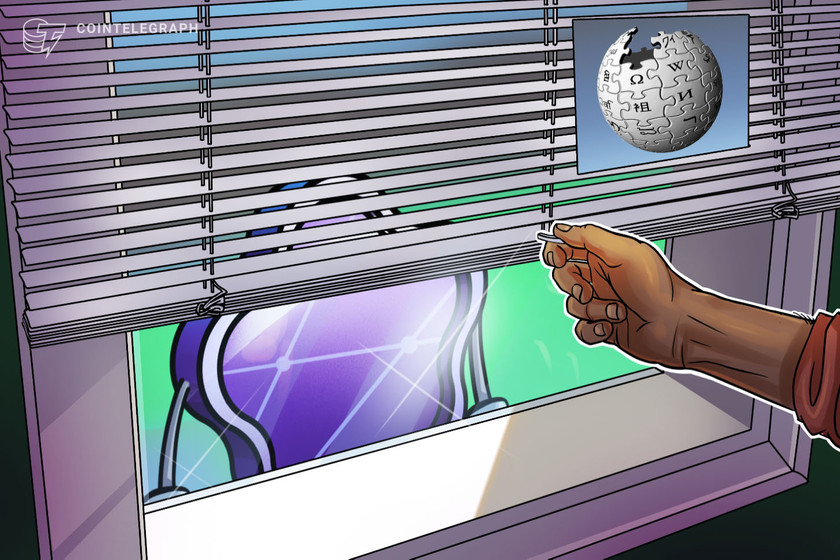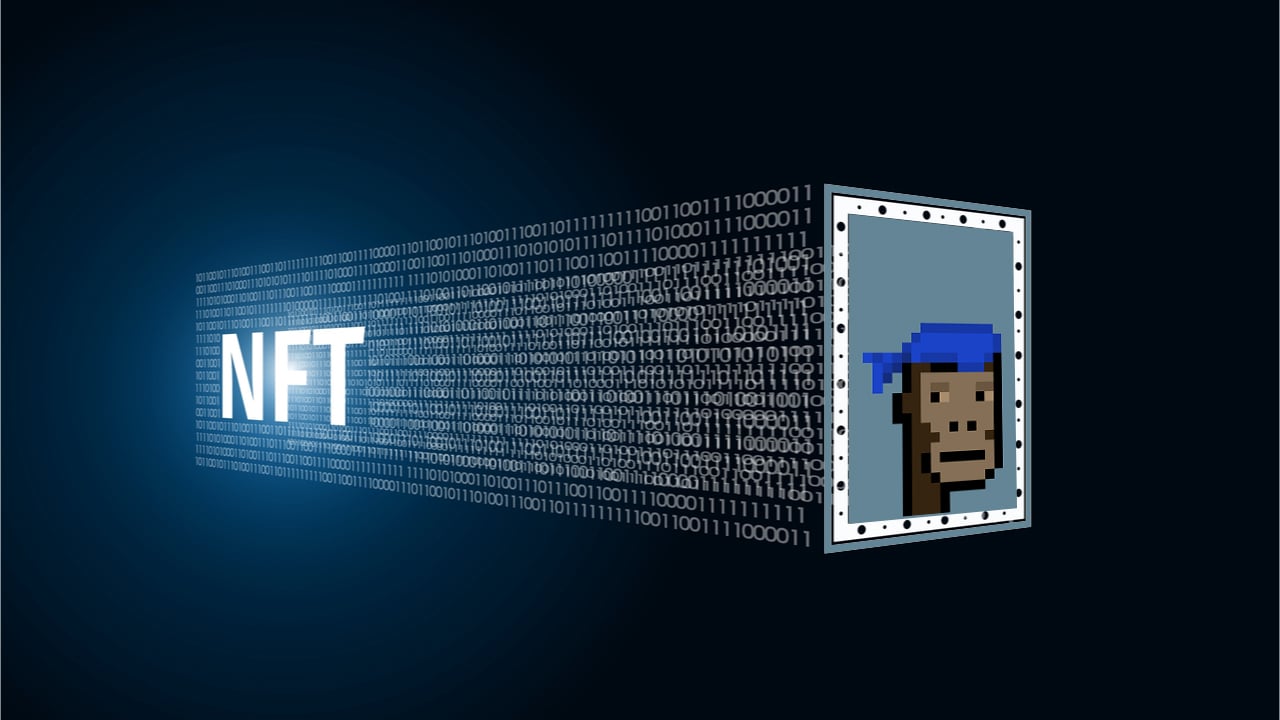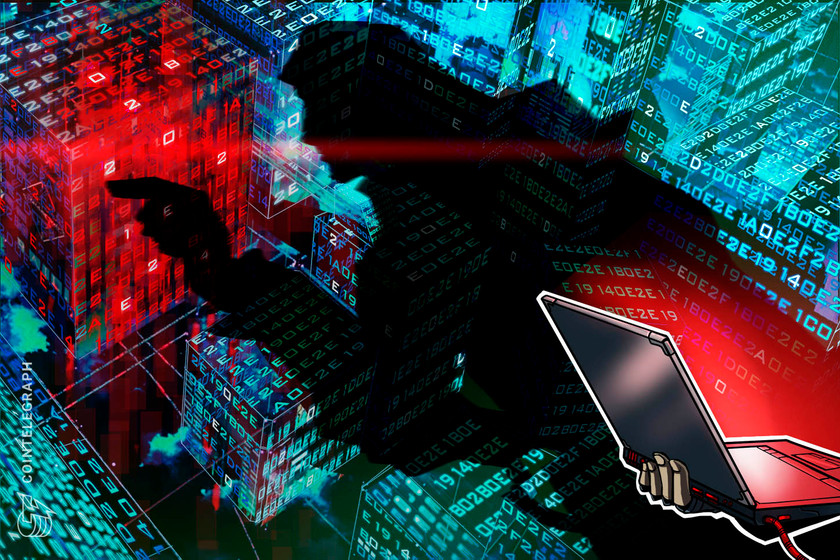
“Wikipedia really can't be in the business of deciding what counts as art or not, which is why putting NFTs, art or not, in their own list makes things a lot simpler,” editor “jonas” wrote.
A group of editors on Wikipedia, the free user generated encyclopedia, have voted against classifying NFTs as a form of art and have come to a consensus to shelve the issue until a later date.
A survey and debate started on the platform at the end of December revolving around the most expensive art sales by living artists and whether NFT art sales should be deemed as “art sales” or “NFT sales.”
“Wikipedia really can't be in the business of deciding what counts as art or not, which is why putting NFTs, art or not, in their own list makes things a lot simpler,” editor “jonas” wrote.
Much of the discussion centered on whether an NFT represented the art or if it was simply a token that was separate to the underlying art. The editors were torn on the definitions and some felt that there was a lack of reliable information to conclude from.
A call for votes found five editors opposed to including NFTs in art sales and just one in support. A consensus was made on Jan. 12 to remove sales such as Pak’s NFT collection that fetched $91 million and Beeple’s $69 million NFT from the top art sales list, and re-open the discussion at a later date.
The decision seems contentious when looking at Beeple's NFT “Everydays: The First 5000 Days” in particular, which depicts a collage of original artworks from a renowned digital artist that sold at the prestigious Christie’s art auction house last year in March. The New York Times also described Beeple as the “third highest selling artist” alive at the time.
According to Wikipedia’s guidelines, neither unaminty or a vote is required to form a consensus. To reach a decision, the consensus must factor in all participating editor’s legitimate concerns that fall within the platform’s policies.
However, the consensus position didn’t go down well with the sole NFT supporting editor “Pmmccurdy” who argued:
“How can we have a consensus when, from the start, I have argued in support of including NFTs on this list. The overwhelming evidence from secondary sources places NFT art as art and thus worthy of inclusion on this list.”
“If we agree Beeple and Pak are artists, why would their sales not count on this list? I don't understand the logic here,” they added.
Editor “SiliconRed” responded that the consensus they were reading was that: “NFTs should be removed from this list for now with the intention to re-open discussion at a later date. To my understanding, this incorporates all concerns, including yours.”
Related: Wiki contributors want to drop crypto donations over environmental concerns
NFT proponents such as Nifty Gateway co-founder Griffin Cock Foster were irked by the issue, noting on Twitter earlier today that:
“This is pretty messed up to see - Wikipedia mods are trying to say that *no* NFT can be art — as in, if it's an NFT, it can’t be classified as art.”
Foster’s twin brother Duncan also chimed in, labeling it an “Art Emergency” as he called the community into action via a post that was re-tweeted by Gemini co-founder Tyler Winklevoss.
“Wikipedia works off of precedent. If NFTs are classified as 'not art' on this page, then they will be classified as 'not art' on the rest of Wikipedia. Wikipedia is the global source of truth for many around the world. The stakes couldn't be higher!” he said
Art Emergency!!
— Duncan Cock Foster (@DCCockFoster) January 12, 2022
There is a debate happening rn on @Wikipedia that has the potential to * officially categorize NFTs as ‘not art’ on all of Wikipedia. *
Wikipedia is a global source of truth. Having NFTs categorized as ‘not art’ would be a disaster!
:
Everipedia, a decentralized Web3 equivalent of Wikipedia, responded to the platform by comparing its approach to NFTs and art:
“Everipedia editors have created over 100 pages on #NFT collections while Wikipedia is moving to mark NFTs as "not art" across their platform. It's time for NFT projects to move to Everipedia $IQ, a Web 3.0 encyclopedia which supports art and innovation.”
This isn’t the first time Wikipedia has had issues with reporting crypto-related information. Cointelegraph reported in September 2020 that anti-crypto activist and senior Wikipedia editor David Gerard helped remove an entry relating to Australian blockchain software firm Power Ledger.
Gerard stated the post was deleted on the “basis of being a pile of press-release churnalism, and the only genuine press coverage was about how Power Ledger was a scam,” despite the entry being sourced from reputable publications such as TechCrunch and The Economic Times.
 2021 is coming to an end and one prominent theme this year in the world of cryptocurrencies and blockchain technology most definitely belongs to non-fungible token (NFT) assets. This year NFTs became a billion-dollar industry and many NFTs have sold for millions of dollars. The following is a look at the top ten NFTs, in […]
2021 is coming to an end and one prominent theme this year in the world of cryptocurrencies and blockchain technology most definitely belongs to non-fungible token (NFT) assets. This year NFTs became a billion-dollar industry and many NFTs have sold for millions of dollars. The following is a look at the top ten NFTs, in […] This year the American artist Michael Winkelmann, otherwise known as Beeple, made history when he sold his non-fungible token (NFT) artwork “Everydays” for $69.3 million on March 11. Beeple’s latest NFT called “Human One” is a life-sized NFT sculpture that sold for $29 million, and the artist will update the NFT during the course of […]
This year the American artist Michael Winkelmann, otherwise known as Beeple, made history when he sold his non-fungible token (NFT) artwork “Everydays” for $69.3 million on March 11. Beeple’s latest NFT called “Human One” is a life-sized NFT sculpture that sold for $29 million, and the artist will update the NFT during the course of […]
Users thought they were signing up for an affordable NFT drop by the famed artist, timed to coincide with his second Christie's auction.
An admin account for Beeple’s official Discord group was compromised overnight resulting in a fake NFT drop that saw users lose an estimated 38 ETH.
An admin from Beeple's Discord named "Multi" confirmed to the group on Nov. 10 that their account had been compromised despite having 2FA. The perpetrator went on to impersonate Multi and the Beeple Announcements Bot to promote a fake NFT drop from Beeple on Nifty Gateway.
The incident is the latest in a long line of Discord hacks that have caused users substantial losses.
Discord members were primed to expect Beeple to run a cheap drop on the back of his most recent auction since he has done it before, with raffles that saw users snap up his NFTs for as little as $1. Fans kept tabs on the the Discord channel and Beeple's Twitter all day for a chance to snap up some bargain NFTs.
Discord member “NFT Simon” told Cointelegraph he had his Metamask wallet set up and was ready to pounce just in case.

“When the post came up on the Official Beeple Discord, from the verified Beeple Bot and the verified Administrator with a link to a Nifty Gateway website I didn't blink twice. I headed over and proceeded to mint as much and as fast as I could,” he said.
NFT Simon nabbed six Beeple NFTs — or so he thought — but was unable to view them on his Nifty account. Back on Discord he was dismayed to find the fake admin was writing in all caps.
“I was greeted to a multiple explicit Gifs of naked men coming from multiple users. It was clearly a scam and someone had hacked Beeple’s Discord.”
After an hour or so the original admin regained control of their login and the chat turned to outing the hackers wallets and reporting them to Binance. “Then we all watched them slowly but surely cash out our money, it was all too late,” he said.
Etherscan shows the alleged hacker’s wallet only has $9,121.54 remaining and that 25 ETH was moved abruptly. Users report more ETH was lost however.
Members of the Discord group provided a mixed reaction today, with some being reasonably calm that Beeple would sort the issue out, while others lamented over the fact that they "FOMO'd" in without thinking.
“I still don't own a Beeple. I know Beeple stood up for the community once when we crashed Makers Place, who knows how or if he will right things this time. I’d certainly prefer six Beeples over my ETH back," said NFT Simon.
Beeple's official account did not address the incident directly but posted a pinned message reading: “To everyone new, please know I will never be like HEY QUICK BUY THIS!!!!”
In response to the lack of communication, one user wrote that instead of a pinned message a "calming and understanding announcement would make things easier to accept."
"This was not a simple DM with a link, but a major security breach with no mods present that continued for about an hour."
Cointelegraph has contacted the Discord admins for comment.

 The Binance NFT Marketplace announced today that the non-fungible token (NFT) platform will launch a premium NFT collection backed by the State Hermitage Museum in Saint Petersburg, Russia. The NFT auction will begin on August 31 and run until September 7, 2021. The NFT auction will feature NFT artwork by the world-renowned artists’ Vincent Van […]
The Binance NFT Marketplace announced today that the non-fungible token (NFT) platform will launch a premium NFT collection backed by the State Hermitage Museum in Saint Petersburg, Russia. The NFT auction will begin on August 31 and run until September 7, 2021. The NFT auction will feature NFT artwork by the world-renowned artists’ Vincent Van […] On Wednesday, the non-fungible token (NFT) market platform Makersplace secured $30 million in a Series A financing round. The team behind the NFT marketplace says it plans to leverage the funds to “acquire additional talent and scale the business.” While the Series A was co-led by Pantera Capital and Bessemer Venture Partners, the world-famous hip […]
On Wednesday, the non-fungible token (NFT) market platform Makersplace secured $30 million in a Series A financing round. The team behind the NFT marketplace says it plans to leverage the funds to “acquire additional talent and scale the business.” While the Series A was co-led by Pantera Capital and Bessemer Venture Partners, the world-famous hip […]